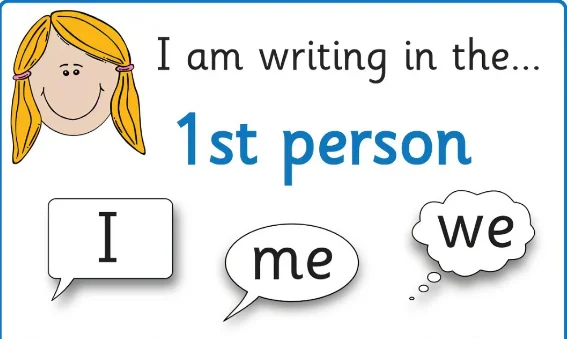Can Research Paper be written in First-Person Language or 3rd

Well, it is acceptable for one to write the research paper in the first person. However, you can use the first-person perspective in specific circumstances to articulate your points clearly.
For instance, it may be part of the instructions for the author to write in the first person tone to state your personal experiences. Read on.
Can the Research Paper be Written in First-Person?
If needed, a research paper can be written in the first-person language if the findings have to be presented by the researcher himself from an observation or ethnography point of view. In presenting observatory research, you can use the first person when discussing research methods and when referring to yourself as an author/researcher.

For example, in your methodology chapter, you might say, “I used snowball sampling” (first person). Then, in the results, you might have a subheading, “The responses from the snowball sample” (third person).
In the discussion, you might have the heading “The findings are consistent with other research,” where you would cite papers in the third person.
The research paper is the work of synthesis, assembly, and analysis of information from several sources to support your thesis.
So, you can also use it in references to previous research if you use a narrative style. Here, you have to refer to the research findings of others. However, if you can find a way to fit it into your thesis, you can use the first person.
However, first-paper language is discouraged in academic writing. Avoid using the first person if you are writing a formal academic paper. The general rule is that anything written for academia should sound as if a disinterested third party wrote it.
Do not use the first person when writing a research paper. If you are doing a research paper, your goal should be to convey information clearly and concisely. Using the first person is too subjective and can make your argument sound weak; avoid including personal bias or opinion.
Instances When to Write a Research Paper in First-Person
First-person writing is personal and subjective, using “I” or “me.” Not only will it make your readers feel closer to you, but it will also make your writing more personal, allowing you to express your thoughts, opinions, and feelings.

The following are a few instances in which it is appropriate to use the first person in an academic essay:
Including a personal anecdote: You need a strong “hook” to draw your readers in during an introduction. Sometimes, the best hook is a personal anecdote or a short amusing story about yourself.
Giving examples: Instead of providing general examples, you can use specific ones from your own experience. For example, instead of saying, “Some people have struggled with depression,” you might say, “I have suffered from depression for many years.”
Stating your position concerning others: Sometimes, it is necessary to express your opinion on the topic, especially in an argumentative where you need to give evidence in the essay or cite sources. Readers want to know where you stand, and it is sometimes helpful to assert yourself by putting your own opinions into the essay.
For example, if you were to write on the topic of dog training, you may have a thesis statement such as “Dogs listen better to trainers who use positive rewards instead of scolding and hitting.” Your essay would then support this thesis with the reasons why harsher punishments do not work as well.
Instances When Not to Write in the First Person
1. When you are trying to Establish Objectivity
If you think readers will be skeptical of your claims or arguments, then an appropriate voice might suggest you are objective and neutral.
This will help convince them that you are not just expressing personal opinions. Examples of such writing include scientific papers and official reports.
2. When you are trying to Give Directions
You may use first-person pronouns in procedural texts) if they refer to the reader or general people but never to the one giving the directions.
For example: “To turn on the computer, press the power button” sounds more professional than “I/We turn on the computer by pressing the power button.”
3. When the whole point is that it is not about you

In sales copy, if the product is supposed to be the star of the show, do not distract from it by telling people how great you are.
If the reader never sees “I” or “we” in this kind of copy, they might fail to realize that a human being wrote it — and that can be a good thing.
4. When you have no expertise to offer
If you do not know what you are talking about, do not pretend as you do!
If there are other sources of information out there that are more relevant on a given topic, then point the reader toward them instead of trying to pretend like you know it all yourself.
5. When you want to give a complete view of something
First-person writing gives only one perspective on a topic — yours. If you want to present all sides of an issue, it may be better to avoid the first person and use the third person instead.
6. When you are giving definitions or instructions
In this kind of writing, it is often better not to use the first person because the tone can sound too casual or personal like a friend telling another friend how to do something.
In this situation, it is better to use the third person because it sounds more authoritative and informative.
7. When you are making a claim that lacks universal agreement
Using first-person makes your writing sound subjective and opinionated, so when you make claims that many people might dispute, it is better not to use “I” or “me.”
Can a Research Paper be Written in the Third Person?
All research papers and other pieces of academic writing should be written in the third-person language. For academic research, the third-person point of view is often more precise and allows a writer to come across as more credible. For example, in creative writing, it may appear less sincere.
It is really up to your instructor or the publication you are submitting to. Some writers prefer writing in the first person because they want to connect with their audience. There are pros and cons either way.
Importance of Third-Person Language in Academic Writing
1. For Expressing General Idea
Third-person writing is most common in academic work, but it can also appear in professional or journalistic writing. It applies when a writer expresses a general idea coming from someone outside of the writer himself, usually an authoritative figure.
Third-person writing is more practical in papers about history or science.
2. Promotes a Formal Tone
Third-person language provides a formal tone and more precise word choice. Using third-person language avoids sounding conversational and better reflects the tone of formal academic writing.
Academic writing is a form of communication between the writer and the reader. It seems impersonal, objective, and factual. Third-person language can make your writing sound more assertive and confident when used correctly.
3. Promotes Scholarly Voice and Eliminates Bias
A key concern when using a third-person voice in academic writing is maintaining an unbiased perspective. Bias often occurs when students write from their perspective rather than what they expect.
4. Makes the Author Remain Objective
The main reason for this difference is that academic writers need to be authoritative and objective by avoiding personal opinions and emotions.
Using third-person language in an academic setting gives readers the impression that an entire academic community supports your argument. Writing from the first-person point of view makes it too easy for readers to assume that everything you say is subjective and potentially biased.
Therefore, when you write in the third person, you are not simply summarizing information taken from another source; your readers will have confidence that you have conducted your research and analysis.




